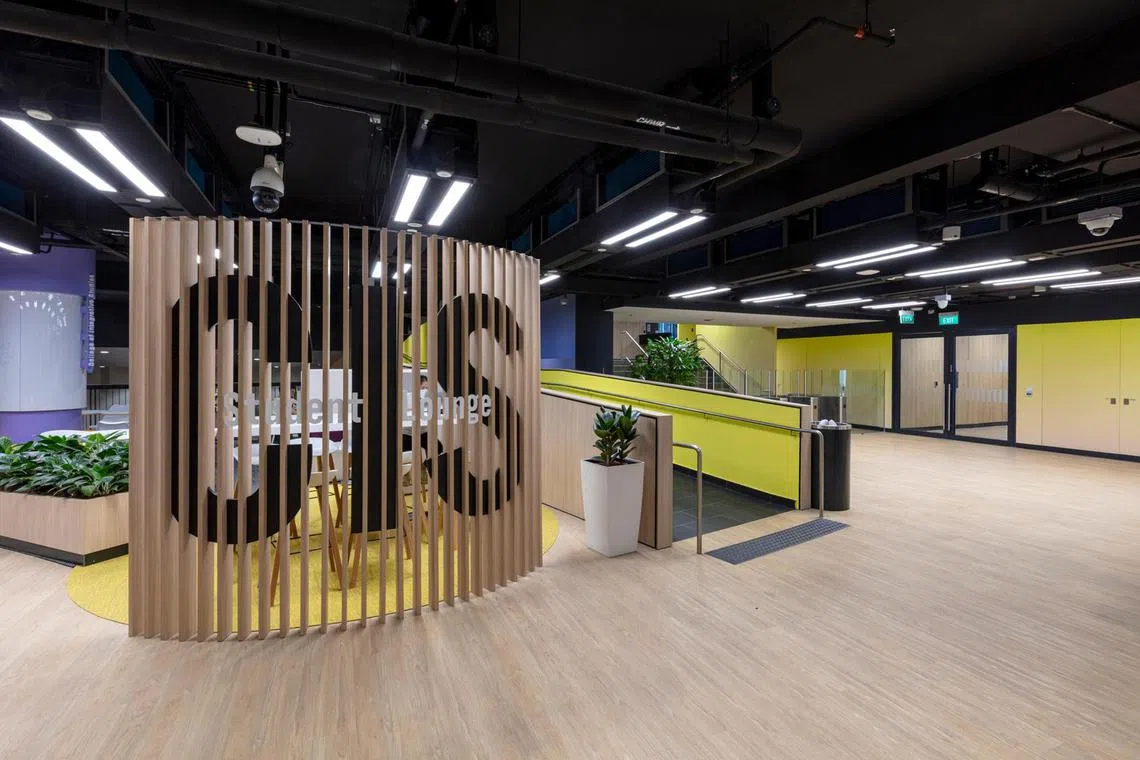askST: Is SMU’s College of Integrative Studies a good choice?
As part of a three-week askST series on university education, The Straits Times addresses questions on SMU’s College of Integrative Studies and interdisciplinary learning.
Sign up now: Get tips on how to help your child succeed

Singapore Management University's new College of Integrative Studies will welcome its first intake of up to 100 students this year.
PHOTO: SMU
My daughter wants to apply to the new College of Integrative Studies (CIS) at Singapore Management University (SMU). What are the distinctive features of the programmes offered by the college? Is interdisciplinary learning just a buzzword or does it have value? What are the potential career pathways for CIS graduates?
As a journalist covering the higher education landscape, I am excited about SMU’s new College of Integrative Studies.
Here are the facts about the college and the programmes it will offer.
CIS will welcome this year its first intake of up to 100 students for the academic year starting August 2023. It will be open to all students applying for admission to SMU as undergraduates.
CIS students will be allowed to defer choosing their degree until the end of their first year. This gives them a whole year to explore the range of disciplines available to them at SMU. Having tried the different offerings, students can then make a more intentional and informed decision.
Those interested in deferring the declaration of their degree can indicate so in their application as their first choice. They can also list their second and third choices of degree programmes.
By the end of their first year, they can opt for one of three options: apply to the Individualised major programme offered by the college, opt for a place in their second or third choice, or apply to transfer to a different SMU programme from the two indicated at admission.
CIS is the only institution in Singapore giving students the option to individualise their majors with a selection from across the university’s entire suite of about 1,000 courses.
Yes, you heard that right – 1,000 courses.
I asked Professor Elvin Lim, the CIS dean, what are some unusual combinations students can pick and the type of career CIS prepares them for.
Prof Lim noted that CIS is the first college in Singapore that lets students create their own major from the full suite of courses available at SMU. He said: “This allows individual students, who are more agile than universities generally are, to respond immediately and innovatively to market needs and the emergent jobs of the future.”
He said students can create a major that combines modules across different schools, for example, in artificial intelligence and cognitive psychology to build the next generation of robots; or sustainability and risk analysis to eventually become sustainability risk managers at corporations or in government; or in data science and data protection law to become cyber-security experts.
CIS students can choose to go on the professional or research track.
The professional track will give them close exposure to industry and real-world problems, enabling them to be well-prepared for the job or industry they choose.
The research track has more of an academic focus and is suitable for those with an interest in a research, government or policy-making career.
All CIS students will be assigned a faculty adviser – those who pursue the professional track, an industry mentor – to guide them in the design of their degree.
With guidance from their advisers and, where relevant, industry mentors, students will draw up a study plan indicating the proposed title and theme of their major, and secure approval for their coursework and capstone project.
Upon successful completion of the programme, students will graduate with a Bachelor in Integrative Studies from SMU. Their academic transcript will reflect the names of their individualised majors, such as Digital Societies or Sustainability and Resilience, to uniquely demonstrate to employers the substance and scope of their custom degrees.
Why are universities suddenly going on about interdisciplinary learning – is it just a buzzword? Why the urgent need for it?
Prof Lim stressed that interdisciplinary learning is not a buzzword, but an imperative for the future.
He said: “In the highly disrupted world we find ourselves in, to be a single subject expert is to risk obsolescence in our rapidly evolving industry cycles. Such a person is the least able to adapt when change, which is accelerating in our time, happens.”
He also explained that SMU settled on “integrative studies” as it wants to emphasise the value of “interweaving knowledge” from two or more domains.
“Our focus is on the breakthrough outcomes of knowledge synthesis. As a result, CIS graduates will be valued not just for their myriad skills and multiple domain expertise, but also for the composite knowledge they will possess that will be necessary in the many hyphenated industries of the future: in bio-tech, fin-tech, cyber-security, sustainability-accounting.”
Prof Lim stressed that it was no longer enough for the worker of the future to possess competency in one traditional domain, or even in two – his or her contributions to the future economy will be measured by the deep integration of these competencies to navigate the complex and interconnected world.
There is an urgency because the world faces huge challenges.
Let’s consider the Covid-19 pandemic – it is an example of the kind of complex, multifaceted and constantly evolving problems people are dealing with.
The pandemic has impacted many aspects of people’s lives – how they live and work, the economy and the environment. To understand and solve the problems it has caused requires integrating knowledge, skills and insights.



